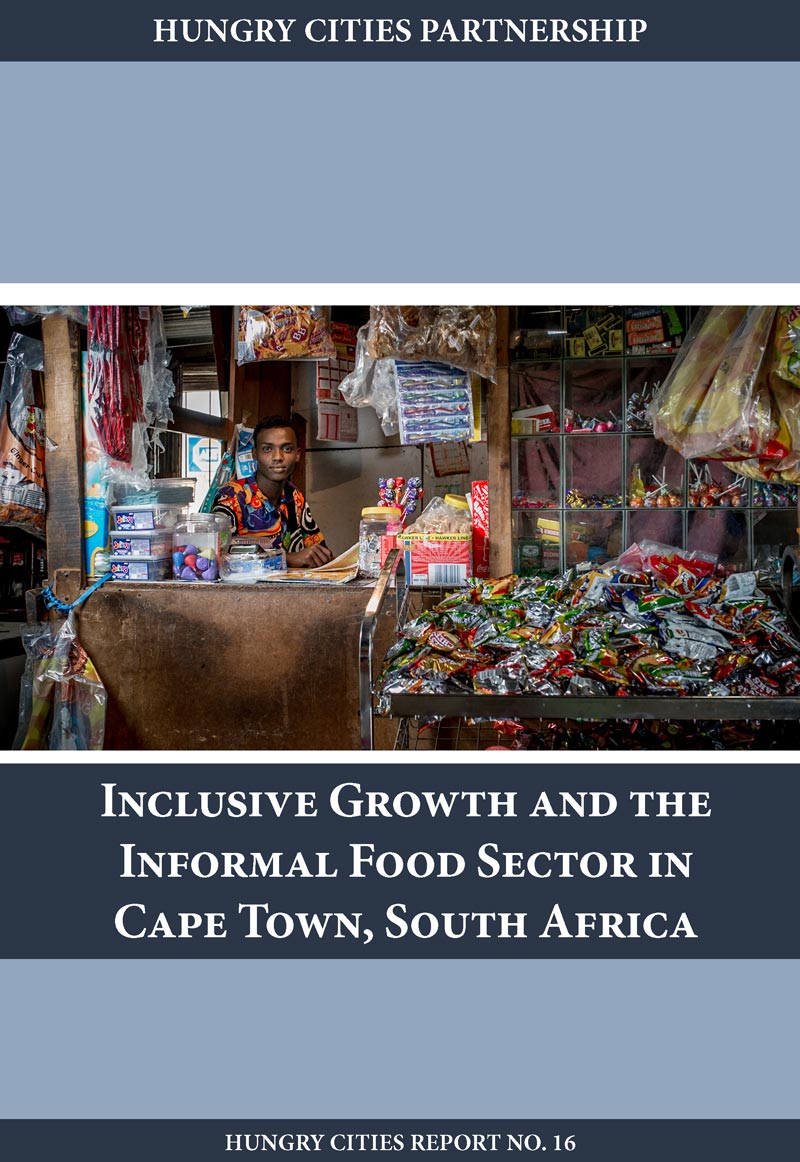The informal food sector – comprising retail, distribution, and preparation of food – is critical to the food security of poor urban households in rapidly growing towns and cities in the Global South. A dense and diverse network of informal markets, suppliers, transporters, mobile traders, hawkers, retailers, and street food vendors makes food more accessible and affordable in low-income areas. The survey of informal food vendors in Cape Town on which this report is based confirms the importance of the sector to the South African city’s food system in providing livelihoods, income and employment opportunities. The survey showed that most vendors start their enterprise with their own savings and continue to operate by reinvesting income in expansion. Very few are able to access the formal banking system for loans at start-up or subsequently, despite the fact that over 50% have bank accounts. While survivalist motivations are strong determinants of participation, many also highly rate their entrepreneurial interests and capabilities. Along with other Hungry Cities Partnership publications, this report explores the policy environment in relation to the food sector. If the informal food sector is to grow and thrive, and to provide opportunities for entrepreneurship, then an enabling policy environment is essential. The findings in this report add significantly to the evidence base on which supportive and workable policies can be constructed.

